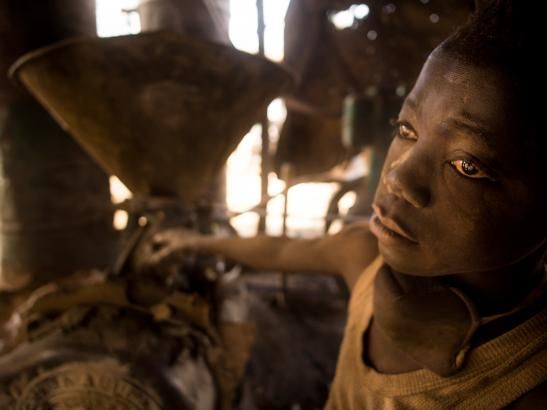On Monday, May 13, 2013, rescue workers near Dhaka, Bangladesh called off the search for survivors in the rubble of the April 24 Rana Plaza building collapse. The AP called it the “worst disaster in the history of the global garment industry.” The catastrophe killed 1,127 people by the official count.
Calamities like this one often compel people to think about where their “stuff” comes from, and Bangladesh isn’t the only country that exports avalanches of goods to the West. The Pulitzer Center gateway “Global Goods, Local Costs” comprises stories produced by journalists across the globe who research how the current and seemingly insatiable demand for goods and resources affects the people and environments closest to those items.
Crisis moments like the Rana Collapse are so often the result of core-dwelling systemic issues, cracks in the building (metaphorically speaking) that deepen over time. At the Pulitzer Center we try to support projects that identify and delve into those problems, attempting to raise awareness and promote understanding before the moment of collapse.
"What Bangladesh needs is not overwhelming,” said Pulitzer Center grantee Jason Motlagh, who has reported extensively from south and southeast Asia on production and exportation. “There are concrete measures. It's a systemic thing on both sides, but it starts with a reasonable sense of outrage." Motlagh blamed in part the downward pressure from Western companies who call for ever-higher volumes of goods at very low prices; he said that practice encourages manufacturers to cut corners on safety measures in their hurry to fill the demand.
What about American buyers who purchase mass-produced goods at cheap prices because they don't necessarily have other options? "It's not easy," said Motlagh. Creating positive change in the supply chain "is ultimately going to cost more." He suggested that all concerned consumers, no matter their income, could try to push companies to adopt standards that protect workers' rights and encourage safety and empowerment.
Last November we started using the Twitter hashtag #WhoMadeMy to get people to think about the origins of products they use or eat every day: cell phones, chocolate, laptops, hair dryers, jewelry. Now we connect that curiosity with stories like Fiona Lloyd-Davies’ reporting on tin conflicts in Eastern Congo; Larry C. Price’s photographs of child labor in Burkina Faso gold mines; Steve Sapienza and Jason Motlagh’s investigation into the labor abuse of the Thai shrimp industry and Dimiter Kenarov’s exploration of fracking for shale gas in Poland and Pennsylvania.
Public outrage over events like the Rana Plaza collapse tends to fade over time, but we should all be curious about the sourcing in our lives. Do some research; your findings might surprise you.
Editor's note: Updated 5/15/2013. The day the search for survivors was called off was corrected to May 13, 2013.
